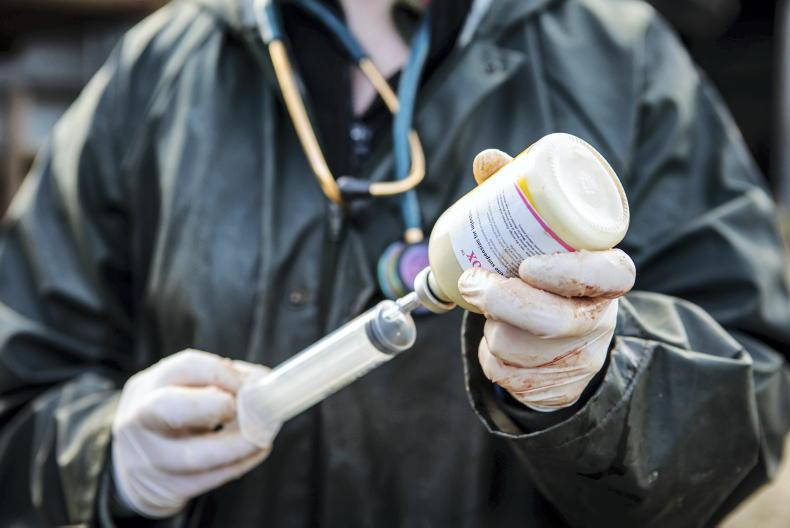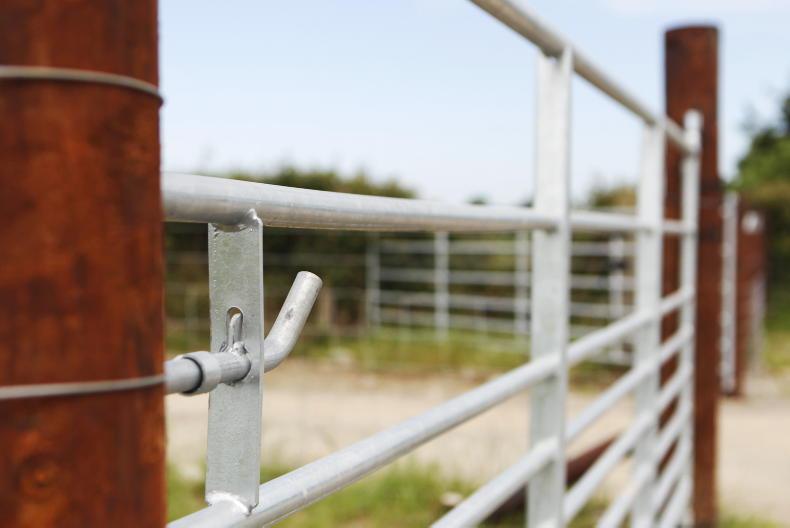Almost two in every three farmers (64%) have already made some changes to their use of antimicrobials and, in general, are ‘positively disposed’ towards making future changes, according to a survey of almost 400 farmers.
The cross-border research, funded by Safe Food and supported by teams at Teagasc, Queen’s University Belfast and University College Dublin, looked at the behaviours of farmers and veterinarians in the usage of antimicrobials, as well as the barriers and facilitators to responsible use.
Farmers surveyed said the introduction of subsidised vaccination programmes or other financial incentives would be positive levers to reduce antimicrobial usage on farms.
The results of the analysis published by Safe Food come as politicians and farm organisations continue to debate the veterinary medicinal products medicated feed and fertilisers regulation bill 2022.
The bill proposes to bring in new regulations on the supply of antimicrobial and anti-parasitic products.
Full findings from the project are available here.
Relationships
The research, which was carried out over two years, highlights that farmer-vet relationships are key to bringing about the behaviour changes needed to reduce the use of antimicrobials in agriculture, says Safe Food.
Speaking on the research, Dr Áine Regan of Teagasc said: “It is challenging to change the routine way the health of animals has been managed for many years.
"The first step is to understand why changes are required in the face of this invisible threat, what changes are required and who needs to make them.

Subsidised vaccination programmes could reduce the use of antimicrobials on farms, say farmers.\ Philip Doyle
“Research increasingly talks of a shift in the role of veterinarians and farm advisers on farms from being reactive to proactive.
"Rather than a traditional role of responding to disease on farms, they play an active part in providing advice on best herd health management practices and, with that, information on best antibiotic practices and the mantra, ‘as little as possible, but as much as necessary’.
“For this role to work successfully, they must be able to deliver information successfully and, where necessary, promote behavioural changes in farmers through motivating them and facilitating collaborative decision making.”
Interim Safe Food CEO Dr Gary Kearney suggested that the new research can inform policy to tackle the issue of antimicrobial usage in agriculture.
Read more
Farmers facing ‘burdensome red tape’ to dose stock – ICSA
Significant percentage of liver fluke treatments almost worthless
Almost two in every three farmers (64%) have already made some changes to their use of antimicrobials and, in general, are ‘positively disposed’ towards making future changes, according to a survey of almost 400 farmers.
The cross-border research, funded by Safe Food and supported by teams at Teagasc, Queen’s University Belfast and University College Dublin, looked at the behaviours of farmers and veterinarians in the usage of antimicrobials, as well as the barriers and facilitators to responsible use.
Farmers surveyed said the introduction of subsidised vaccination programmes or other financial incentives would be positive levers to reduce antimicrobial usage on farms.
The results of the analysis published by Safe Food come as politicians and farm organisations continue to debate the veterinary medicinal products medicated feed and fertilisers regulation bill 2022.
The bill proposes to bring in new regulations on the supply of antimicrobial and anti-parasitic products.
Full findings from the project are available here.
Relationships
The research, which was carried out over two years, highlights that farmer-vet relationships are key to bringing about the behaviour changes needed to reduce the use of antimicrobials in agriculture, says Safe Food.
Speaking on the research, Dr Áine Regan of Teagasc said: “It is challenging to change the routine way the health of animals has been managed for many years.
"The first step is to understand why changes are required in the face of this invisible threat, what changes are required and who needs to make them.

Subsidised vaccination programmes could reduce the use of antimicrobials on farms, say farmers.\ Philip Doyle
“Research increasingly talks of a shift in the role of veterinarians and farm advisers on farms from being reactive to proactive.
"Rather than a traditional role of responding to disease on farms, they play an active part in providing advice on best herd health management practices and, with that, information on best antibiotic practices and the mantra, ‘as little as possible, but as much as necessary’.
“For this role to work successfully, they must be able to deliver information successfully and, where necessary, promote behavioural changes in farmers through motivating them and facilitating collaborative decision making.”
Interim Safe Food CEO Dr Gary Kearney suggested that the new research can inform policy to tackle the issue of antimicrobial usage in agriculture.
Read more
Farmers facing ‘burdensome red tape’ to dose stock – ICSA
Significant percentage of liver fluke treatments almost worthless










SHARING OPTIONS